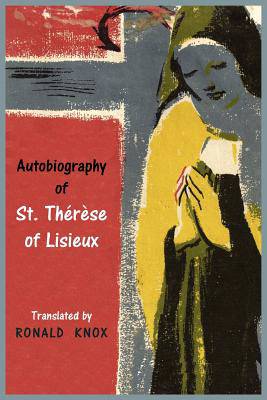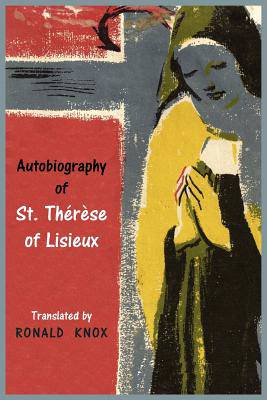
- Retrait gratuit dans votre magasin Club
- 7.000.000 titres dans notre catalogue
- Payer en toute sécurité
- Toujours un magasin près de chez vous
- Retrait gratuit dans votre magasin Club
- 7.000.000 titres dans notre catalogue
- Payer en toute sécurité
- Toujours un magasin près de chez vous
Description
2012 Reprint of 1958 Edition. Exact facsimile of the original edition, not reproduced with Optical Recognition Software. St. Therese of Lisieux, "The Little Flower", was recently declared a Doctor of the Church by Pope John Paul II, the third woman to receive this honor in 2000 years. She thus ranks with such intellectual and theological giants as St. Augustine and Saint Thomas Aquinas. This elevation is all the more astonishing when we consider her background; born to a bourgeois family in provincial 19th century France, she entered a cloistered convent at the age of 15, and died in obscurity at age 24. The posthumous publication of her spiritual journals created a sensation in the Catholic world comparable to that produced in the postwar world by "The Diary of Ann Frank." Adopted as a universal "little sister" by the French soldiers of World War I, St. Therese's naive, charming, but profound words were carried next to many an infantryman's heart. Therese's story and the effect of her powerful personality and passionate devotion have lost none of their force. "At last I have found my calling," she declared. "My calling is love." The core of her spiritual message, the "little way" is the recognition that any act, no matter how trivial, is infinitely valuable if done out of love. Her influence on other great 20th century figures such as Theresa of Calcutta and Edith Stein is obvious. This is a unique book, to be read with pleasure, with joy, and with the assurance of great spiritual benefit. The homely and human details of Therese's short life lead to the path of enlightenment. In her memoirs, she describes spiritual life: she lived each day with an unshakable confidence in God's love. "What matters in life," she wrote, "is not great deeds, but great love." Therese lived and taught a spirituality of attending to everyone and everything well and with love. She believed that just as a child becomes enamored with what is before her, we should also have a childlike focus and totally attentive love. Therese's spirituality is of doing the ordinary, with extraordinary love.
Spécifications
Parties prenantes
- Auteur(s) :
- Editeur:
Contenu
- Nombre de pages :
- 332
- Langue:
- Anglais
Caractéristiques
- EAN:
- 9781614273103
- Date de parution :
- 06-06-12
- Format:
- Livre broché
- Format numérique:
- Trade paperback (VS)
- Dimensions :
- 152 mm x 229 mm
- Poids :
- 485 g







